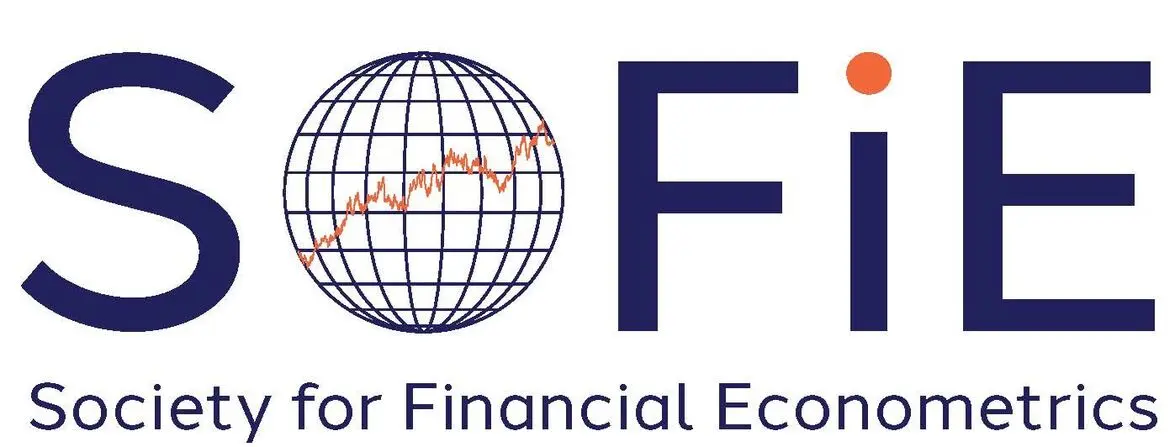-
- Summer School
- Posted 4 days ago
NIPE Summer School - Ex Post And Ex Ante Methods For Program Evaluation with Petra Todd (University of Pennsylvania)
Starts 8 Jul at University of Minho – School of Economics, Management and Political Science in Braga, Portugal
-
- Summer School
- Posted 1 week ago
CEMFI Summer School 2025
Starts 18 Aug at CEMFI in Madrid, Spain
-
- Summer School
- Posted 1 week ago
The Political Economy of Immigration – Economics, Attitudes, and Votes: Unpacking Immigration Dynamics
Starts 30 Jun at UB School of Economics, University of Barcelona
-
- Summer School
- (Online)
- Posted 1 week ago
CIMS Online Summer Schools: Foundations and Advanced of DSGE Macro Modelling, and International Trade/Gravity Models
Starts 3 Sep at University of Surrey in Guildford, United Kingdom
-
- Summer School
- Posted 2 weeks ago
BSE Summer School 2025: Economics, Finance, Data Science, and related fields
Starts 23 Jun at Barcelona School of Economics in Barcelona, Spain
-
- Professional Training Course, Summer School, Supplementary Course, Course, Online Course
- Posted 2 weeks ago
Econometric Methods for Risk Assessment and Forecasting: SoFiE European Summer School (Brussels)
Starts 16 Jun at National Bank of Belgium in Brussels, Belgium
-
- Professional Training Course, Summer School, Supplementary Course
- Posted 2 weeks ago
EcoMod School of Modeling and Data Science Summer School
Starts 23 Jun at EcoMod School of Modeling and Data Science in Prague, Czechia
-
- Summer School
- Posted 3 weeks ago
Oxford Economics September Summer School
Starts 8 Sep at University of Oxford in Oxford, United Kingdom
-
- Summer School, Supplementary Course
- Posted 3 weeks ago
Fundamentals of Graduate Economics and Finance (21-25 July 2025)
Starts 21 Jul at University of Oxford in Oxford, United Kingdom
-
- Professional Training Course
- Posted 1 month ago
BSE Competition Economics Executive Courses
Starts 13 May at Barcelona School of Economics in Barcelona, Spain -
- Online Course
- (Online)
- Posted 1 month ago
(Oxford) Diploma : Macroeconomics/Behavioural Economics
at Udemy
-
- PhD Program, Supplementary Course, Program
- (Partially Online)
- Posted 1 month ago
International Doctoral Courses and Seminars in Health Economics and Policy
at Swiss Society of Health Economics (sggö) in Lucerne, Switzerland
-
- Summer School
- Posted 2 months ago
Tinbergen Institute Summer School
Starts 23 Jun at Tinbergen Institute (TI) in Amsterdam, Netherlands
-
- Summer School
- (Online)
- Posted 1 month ago
7th Edition of International School for Advanced Training
Starts 23 Jun at Centro Ricerche Economico e Sociali Manlio Rossi - Doria, Università Roma Tre in Rome, Italy -
- Summer School
- (Online)
- Posted 2 months ago
Tools for Macroeconomists Summer School
Starts 4 Aug
-
- Summer School
- Posted 1 month ago
TWENTY-FOURTH SUMMER SCHOOL IN INTERNATIONAL AND DEVELOPMENT ECONOMICS
Starts 2 Sep at Centro Studi Luca d'Agliano, University of Milan in Italy -
- Professional Training Course, Supplementary Course, Online Course
- (Online)
- Posted 1 month ago
Inequality in Health and Health Care: Theoretical and Empirical Considerations
Starts 5 Nov at University of Oxford -
- Summer School
- Posted 1 month ago
Markets and Governments: a Theoretical Appraisal
Starts 18 Jun at Center for Economic and International Studies (CEIS), University of Rome Tor Vergata in Monte Porzio Catone, Italy -
- Professional Training Course, Course, Online Course
- Posted 2 months ago
Introdution to R
at Datacamp
-
- Summer School
- Posted 2 months ago
2025 LIS Summer Introductory Workshop 30 June – 04 July 2025
Starts 30 Jun at LIS: Cross-National Data Center in Luxembourg in Esch-sur-Alzette, Luxembourg -
- Summer School
- Posted 3 months ago
Experimental Methods for Scholarship Research Summer School
Starts 9 Jun at Department of Economics, University of Southampton in Southampton, United Kingdom -
- Summer School
- Posted 4 months ago
Advanced Summer School in Economics & Econometrics 2025
Starts 30 Jun at Department of Economics, University of Crete in Rethymno, Greece
-
- Online Course
- (Online)
- Posted 2 years ago
Strategic Business Analytics
at Coursera
-
- Professional Training Course, Online Course
- (Online)
- Posted 2 years ago
Advanced Valuation and Strategy - M&A, Private Equity, and Venture Capital
at Coursera
-
- Supplementary Course, Online Course
- (Online)
- Posted 2 years ago
Game Theory II: Advanced Applications
at Coursera
Pagination














